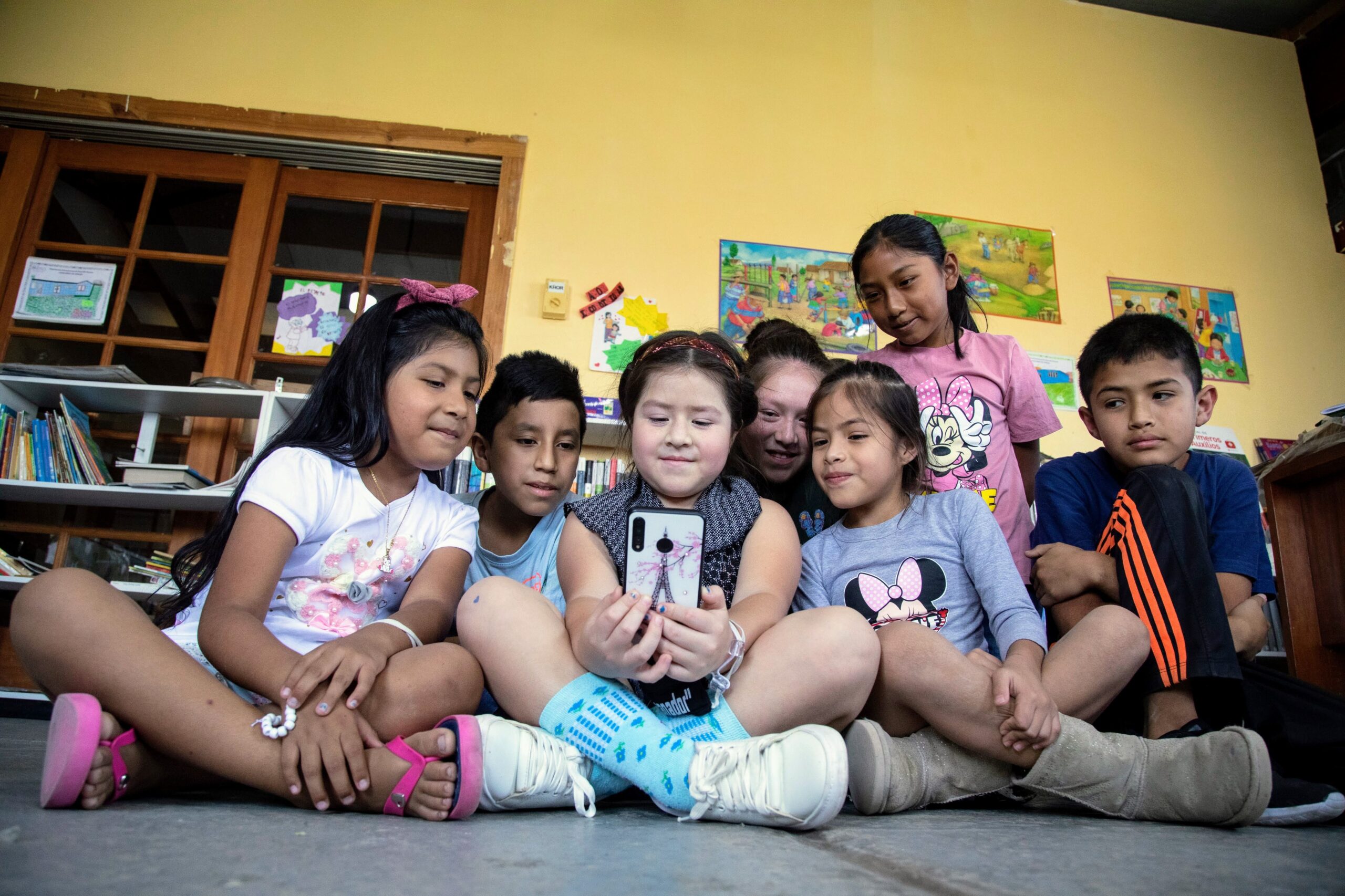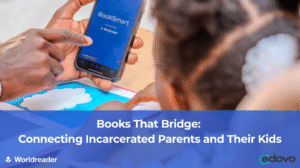Walter Alvarado, Worldreader’s Regional Director for Peru and Latin America, explains how technology and mobile reading-based education, when paired with teacher and family support, are helping close the gaps in access to knowledge for Peruvian students. This post is an adaptation of the original article published in Spanish on Hablando Claro.

Undoubtedly, the recent COVID pandemic and the current political and social crisis scenario heavily impacted education in Peru.
According to UNICEF, by early 2022 approximately 700 thousand students had stopped attending school due to the economic and social repercussions of the pandemic. This has serious consequences on learning: the World Bank estimates that school closures and absenteeism could result in a 10-year setback for Peruvian students. Specifically when looking at reading, the Ministry of Education’s Virtual Learning Assessment (EVA 2021) shows that Peruvian schoolchildren are on average 3 years behind in their reading skills, and 80% of 4th-grade students cannot read and understand a simple story.
In this scenario, digital technologies – when adopted with family and school involvement – can provide support where the education system needs it most and play a key role in the solution to the global learning crisis. Several studies and remote learning programs developed during the pandemic showed that children can continue learning outside the school environment with the support of their parents and teachers.

When we look at learning skills, we know that the lack of adequate books in schools and homes is a decisive factor in the development of reading habits in early childhood. The digital reading program CreceLee, implemented by Worldreader in partnership with the Grupo de Análisis para el Desarrollo-GRADE and World Vision Peru, created a digital library of 250 books in Spanish aligned with the national curriculum. These reading materials are freely available to thousands of primary school children and their families across the country, who can read anytime, anywhere, on any device, including mobile phones and tablets, through Worldreader’s BookSmart app.
During school closures in 2020 and 2021, the program was developed remotely and reached about 7,500 students in six regions. Children read an average of five books each, at a rate of 30 minutes per week. Overall during the same period, Worldreader’s digital library registered a total of over 29 thousand readers on mobile devices nationwide.
“My students and their parents have discovered a new way to learn together. It’s the first time that families are using mobile phones and tablets as learning tools and that my students are reading so many books. Thanks to CreceLee, my students are improving their education and their future.”
Waldir Chacón Huancachoque, Primary School Teacher in Machaca Quispicanchi, Cusco
It’s clear that the wide adoption of mobile technology (approximately 94% of Peruvian households have at least one cell phone, according to INEI), and the growing connectivity in the country (more than 52% of households have an internet connection), have been crucial factors for these results.
Therefore, technology-based education (ed-tech), and specifically mobile reading, have great potential for growth, with all the benefits that this implies for the dissemination of knowledge and the impact on the learning of millions of children and young people from the country’s most under-resourced communities.
“By encouraging reading, our children can discover what they want to become in the future. Thanks to digital books, my son has become interested in plants, cooking, and human values.”
Parent, CreceLee program
Partnerships are crucial for reading programs to be extended to the greatest possible number of students, teachers, and families. This includes a variety of stakeholders from the government, civil society, and the private sector.
Telecoms organizations have been making key and sustained contributions to these efforts. From facilitating access to mobile devices and technology at affordable costs to working towards greater connectivity, it’s essential that we work together to harness the power of remote and digital learning. The current crisis requires that these funding, free data access, and reading support initiatives are expanded for education programs so that they can continue to grow their impact.

➤ Are you a caregiver? Download our free app on your phone or tablet and bond with your children over stories – offline reading is available so that your family can keep building brighter futures together anytime, anywhere.
➤ Are you an educator? Partner with us and discover how to use innovative, low-cost technology and world-changing reading programs to empower your students at home and in the classroom.
➤ Are you a reading champion? By supporting our work, you’ll power the stories that ignite the imagination of children in over 100 countries and help tackle the global learning crisis.




